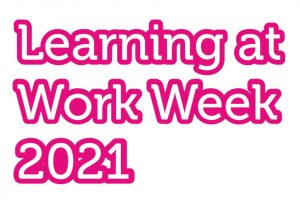
A Rolls Royce doesn’t roll off a factory line. It’s the fruit of years of learning and fine-tuning - and the same goes for our careers. Pamela Dow and EY’s Josie Cluer on what we need to become a skilled Civil Service.
We’re slap-bang in the middle of this year’s Learning at Work Week, an annual reminder - and source of support - in building a learning culture.

To mark Learning at Work Week on 17 -23 May, here are 5 solid reasons to build your knowledge, skills and networks.
You’re entitled to the tools you need to succeed, right from the start
Good induction is more than a few introductory chats. New starters – at all levels – sometimes struggle to know, and gain, the universal skills and knowledge necessary for working effectively in government.
If we are serious about giving everyone an equal chance to succeed, then we have to give them equal opportunities to do so. This should take the form of high quality, formal induction, and clear and accessible skills training.
New skills are needed for the challenges of modern government
Along with the universal knowledge and skills, we need to equip ourselves for the digital age. The basics of Science, Technology, Engineering and Maths (STEM) are as vital to every role as writing clearly. They’re need to have, not nice to have. Big data analysis and interpretation, digital capabilities, and scientific methods, are core to approaching most public policy challenges. We need to know enough about them to know when and how to seek specialist support.

We don’t all need to be car mechanics, but we need to know how to drive the car, and who to call when it breaks down. At the same time, excellence in public administration will always be in demand. That means mastering and practising skills – subjective judgement, managing people, complex trade-offs – that robots are unlikely to learn. Why? The fact is, they’re essential for running and transforming complex systems.
Good management is as important as leadership
Leadership in government will only be as good as the managers who have the right skills to transform inspiring visions into tangible results. In recent years we have - rightly - supported people to think about leadership styles, and qualities, and difference, and impact on others. We have shown that having only one model of a leader is undesirable. But too much focus on abstract qualities can detract from clarity and precision in what leaders and managers have to know and do.

As we progress through our careers, we need to acquire practical skills to achieve tangible results: managing projects, managing performance, managing people. That's why the curriculum framework underpinning the new Government Campus emphasises “Strand 3” - leading and managing. We’re bringing clarity and accessibility to the practical knowledge and skills leaders and managers need, as they build experience through their careers.
You can develop your technical skills and speed your career progression
On joining the Civil Service and throughout your career, you can join a profession and cross-Government Function, as well as move between them. You’ll have a defined ‘domain’ of skills and knowledge, and a community of practice, providing both formal and informal expertise, accreditation and ‘license to practice’.
You’ll be supported in a clear career pathway, which will be relevant beyond government and the public sector: finance, law, economics, commercial, debt management, communications. Your function or profession is not just about training, it also gives you access to a valuable network of colleagues and mentors beyond your immediate team.
The better your skills, the better we will be able to deliver for the public
In his Ditchley Foundation lecture last June, Chancellor of the Duchy of Lancaster, Michael Gove, talked about the privilege of public service. Ministers and civil servants are united in their shared ability to deliver for the public: better government, better services and better use of resources. When civil servants have confidence and competence in the skills to do their jobs, they not only perform better but have more pride and status. The Civil Service is more productive and measurably effective, and the nation has better public services and more trusted institutions.

For all these reasons and more, now is the time to…
Access training open to you by going to learn.civilservice.gov.uk
Talk to your line manager to explore training that might benefit you
Find out about what your department is doing to celebrate Learning at Work Week by speaking with your learning and development or capability lead, who can be found on your department intranet.
Read more about the great training already being developed as part of the Government Skills Campus through real life stories shared throughout Learning at Work Week and beyond on www.gov.uk/gscu.
